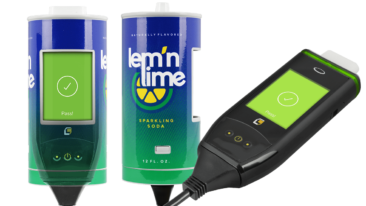
It wasn’t until July 2, 1997, that Illinois implemented the .08 DUI law. This new law lowered the maximum amount of blood alcohol content (BAC) from .10 to .08, allowing Illinois to become the 25th state in the United States to implement this law. Now, all 50 states abide and enforce this law today. In 1997, the death toll of DUI related fatalities was at a frightening 534. As of 2015, that number has barely crept over 300, reducing 43% drunk driving deaths fatalities in Illinois.
Driving while under the influence has drastic consequences that are emotionally, physically, and financially taxing for any driver. Not only are they putting their own life at risk, but other lives as well, such as neighboring drivers and pedestrians.
Illinois Interlock Law
First time offenders in the state of Illinois who are arrested for a DUI must install and pay for a breath alcohol ignition interlock device (BAIID). These devices, when installed on any vehicle, requires the driver to blow into a car breathalyzer to ensure no alcohol has been consumed. In America, the legal limit is .08 BAC. However, with BAIID’s car breathalyzers, drivers must have a BAC lower than .025 or the car will not turn on.
What is preventing the driver from just having the passenger blow into the BAIID instead of the driver? BAIID requires drivers to consistently blow into the breathalyzer while they drive to ensure no alcohol has been consumed since the vehicle has been turned on. Devices such as BAIID have minimized DUIs and fatal crashes involving alcohol.
DUI Statistics in Illinois
Here are some current statistics on DUIs, according to Alcolock:
- Police arrested 27,046 people for DUI in 2017
- 75% of people arrested for DUI are male
- 57% of DUI offenders are under the age of 35, with an average age of 34
- Between 11 pm and 4 am are when the most DUI arrests made
- The average BAC is .16 (this is twice the legal limit anywhere)
- 91% of DUI offenders lost their privileges
- 86% of impaired drivers were first-time offenders
DUI Laws of Illinois
- Implied Consent Law
- First Offence
- Second Offence
- Third Offence
- Look Back Period
Implied Consent Law
Illinois’s Implied Consent Law states that anyone who is in control of a motor vehicle must provide law enforcement a sample of their breath, blood, or urine when suspected of driving while under the influence. By receiving a license in Illinois, you are consenting to any cooperation necessary with law enforcement who has suspected you of a DUI. The standard test is provided through a breathalyzer, but if you refuse to cooperate, then you must have blood drawn and sit in jail.
First Offence
A First Offence DUI is classified as a Class A Misdemeanor, and numerous consequences stem from this:
- License is suspended for one year
- Minimum 364 days in jail
- $2,500 is fines
These are the punishments that are presented after the court’s process has conceded. However, before any legal hearing, an officer may revoke your license at the time of the arrest! This act is called an Administrative License Revocation or Suspension (ALR/ALS), which allows a law enforcement officer to revoke your license before any court process or punishment has begun. Before the arrest, your license can be suspended in an instant because of a DUI.
Keep in mind DUIs are only misdemeanors if you get pulled over by police. If you crash, cause injury to anyone, or damage to anything else it is considered a felony and you will be immediately arrested and taken to jail for booking.
Second Offence
With a Second Offence DUI, the penalties are almost identical; the only exception is that your license will be revoked for five years instead of one. If your job requires you to have a license, then you may be suspended or fired.
Third Offence
In the third strike category of DUIs, every consequence is severely enhanced:
- License suspended for ten years
- 25,000 dollars in fines
- 3-7 years of jail time
- Felony Charge
Imagine ten years without the ability to drive yourself anywhere—let alone the amount of time that will go into legal procedures. Additionally, you’ll forfeit $25,000 and spending a minimum of three years in jail.
Look Back Period
In the state of Illinois, there is no Look Back Period for any driver; a DUI will remain on your permanent record. If you were to get a DUI in 2009 and then receive one today, both would be part of your criminal history. Illinois is unforgiving to those who make the mistake of drinking and driving—thus it’s paramount that you understand the laws of the state.
Lastly, drinking and driving puts yourself and others at risk. Laws aside, it is a mistake that can and should be avoided.
Sources:
The Law Offices of Andrew Nickel, LLC. DUI Illinois Laws & Penalties.
https://andrewnickel.com/dui-illinois/
Responsibility.org. Alcohol Statistics, State-Map, Illinois.
https://www.responsibility.org/alcohol-statistics/state-map/state/illinois/
Kane County Connects. 20 Years After .08 DUI LAW, FATALITIES DOWN 43 PERCENT. August 23, 2017.
https://kanecountyconnects.com/2017/08/20-years-after-08-dui-law-fatalities-down-43-percent/

